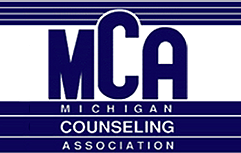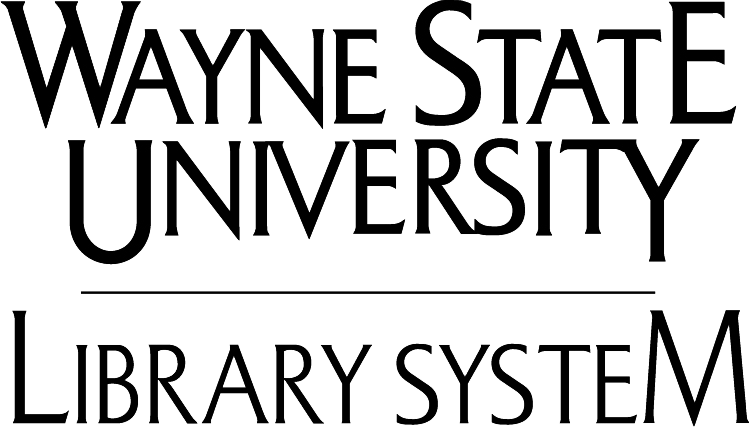Aims & Scope
Mission
Our mission in publishing the Michigan Journal of Counseling: Research, Theory, and Practice is to enhance mental health and wellness by providing diverse mental health professionals with open access to timely, relevant, peer-reviewed research and theory that is useful for their ongoing development.
Author Guidelines
In keeping with our mission, we publish theoretical articles, qualitative research, quantitative research, and biographic articles.
Style Guide: Submissions must adhere to the sixth edition of the American Psychological Association (APA) Publication Manual. Submissions must be double spaced with one inch margins. Authors are encouraged to communicate as concisely as is possible, without sacrificing accuracy or meaning.
Digital: Digital versions of manuscripts are required; All submissions must be in Microsoft Word .doc or .docx format.
Cover Page: To facilitate blind review, place the names of the authors, positions, titles, places of employment, and mailing addresses on the cover page only and submit the cover page as a separate attachment from the manuscript. Remove any references that could identify the authors from the manuscript body. We will not review manuscripts containing identifying information.
Abstract: Provide a clear abstract less than or equal to 150 words on the top of the second page.
Publication Style: Submissions are expected to adhere to the sixth edition of the American Psychological Association (APA) Publication Manual. Authors are expected to ensure congruence between in-text citations and their reference list. Please include DOIs for references, if available.
Language: As this is a counseling journal, authors are encouraged, but not required, to use the terms counselor, counseling, and client instead of synonymous variants such as therapist, therapy, or patient. Attend to the APA Publication Manual's guidelines for reducing bias. For example, the term “clients who use substances” is preferred to the biased term “substance abusers.” Authors are encouraged to write manuscripts as concisely as possible, without sacrificing meaning or comprehension.
Length: Authors are encouraged to limit submissions to 30 pages maximum, including title page, abstract, and references. Longer submissions will be considered at the Editor’s discretion.
Color Graphics: As the Journal is published online, we accept color figures and graphics, without cost to authors.
Copyrighted Content: Authors may not submit manuscripts that have been published elsewhere, or that substantially overlap with previously published work. Work that is submitted to the Michigan Journal of Counseling must not be submitted to other journals during the review process. Prior to publication, authors who quote 400 or more words or include any tables, figures, or graphics from any copyrighted work must provide written consent from the copyright holder for the work to be distributed through the Michigan Journal of Counseling. Note that the copyright holder is often different from the author.
Submission Process
Manuscripts will be assigned to two blind reviewers. Should the initial two reviewers disagree on the disposition, a third reviewer will serve as a tie breaker. The Editor reserves the right to reject manuscripts prior to submission to peer reviewers if a manuscript does not adhere to these authorship requirements or is otherwise deemed unsatisfactory for publication in the Journal.
There is no cost to submit an article, nor are there any fees for manuscript processing or publishing materials in this journal. Manuscripts must be submitted digitally through digitalcommons.wayne.edu/mijoc
Accepted Manuscripts
Upon acceptance, authors will be provided with a final proof for review. At this time they must also submit a signed release licensing the Journal to publish their work. Feedback on the final proof as well as signed agreements must be returned within 72 hours.
Rights and Licenses
Michigan Journal of Counseling is an open access journal. Authors retain copyright in their work, and no fees are required for publication. Works accepted to the Journal will be published under a Creative Commons Attribution 4.0 International license (https://creativecommons.org/licenses/by/4.0/"), and authors will be required to grant this license to the public, and to grant to the Journal the right of first publication of the work.
About the Michigan Counseling Association
The Michigan Counseling Association is a not-for-profit, professional and educational organization that is dedicated to the growth and enhancement of the counseling profession. Founded in 1965, MCA is the state's largest association exclusively representing professional counselors in various practice settings. By providing leadership training, publications, continuing education opportunities, and advocacy services for all members, MCA helps counseling professionals develop their skills and expand their knowledge base. The central mission and purpose of the Michigan Counseling Association is to enhance human development throughout the lifespan and to promote the counseling profession. Additionally, the association purposes shall be:
- to promote and advance the interests of counseling services in the State of Michigan;
- to provide an organization through which those engaged in counseling services can exchange ideas, seek solutions to common problems, and stimulate their professional growth;
- to establish and improve standards of professional services in counseling services;
- to assume an active role in helping others in educational institutions and in the community to understand and improve counseling services;
- to conduct activities designed to promote the professional growth of counseling services in the State of Michigan;
- to disseminate information and to focus public attention on and promote legislation affecting counseling services in the State of Michigan; and
- to encourage the formulation and growth of Chapters and Divisions.
Contact Information
Inquiries regarding submissions should be directed to the Editor, Dr. J. Scott Branson, at JofCounseling@wayne.edu.


